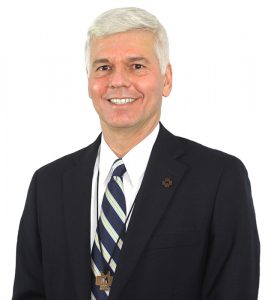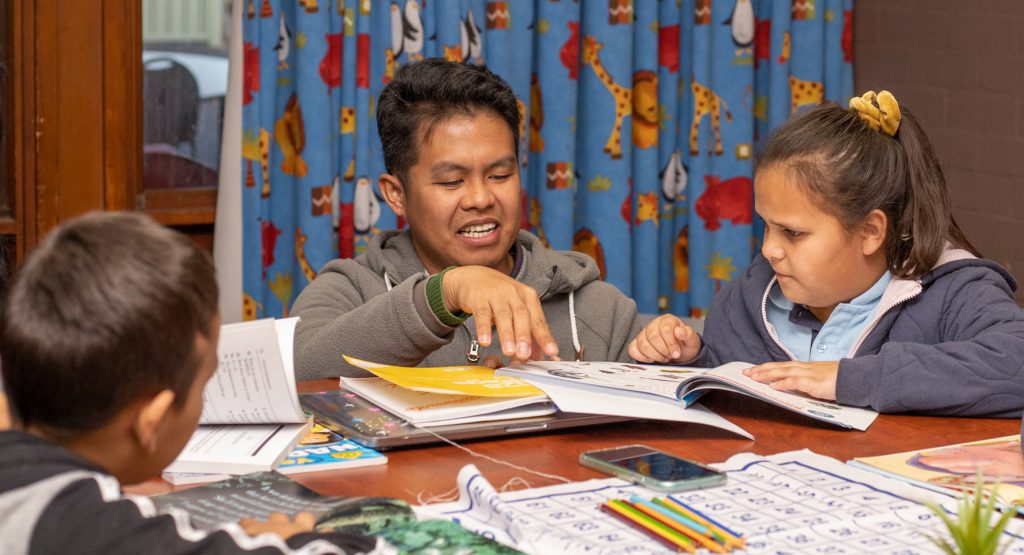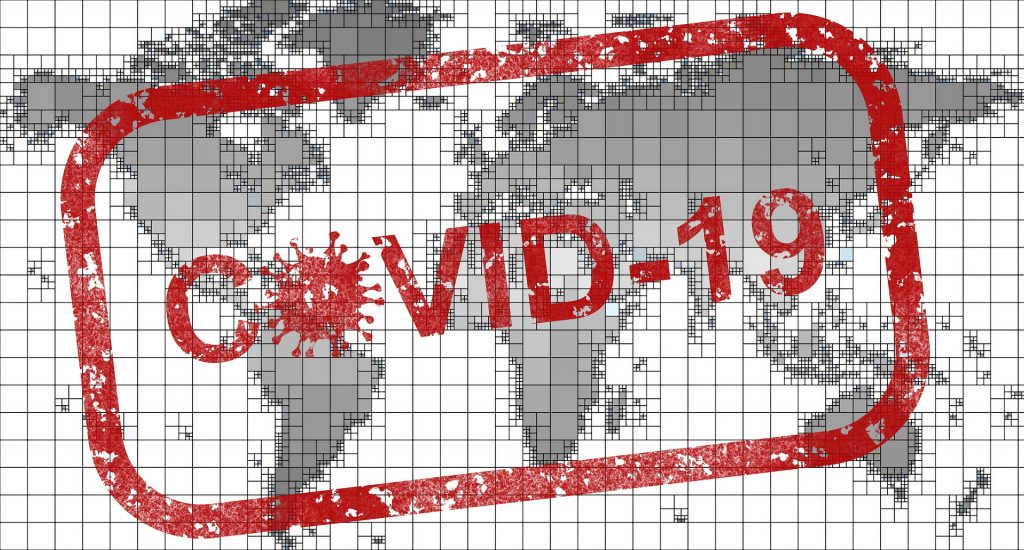
Br. Ben Consigli, General Councillor, reflects about the coronavirus pandemic
Do not be dismayed by the brokenness of the world. All things break. And all things can be mended. Not with time, as they say, but with intention. So, go. Love intentionally, extravagantly, unconditionally. The broken world waits in darkness for the light that is you.” (L.R. Knost)
A moment of lasting change

Since the outbreak of the coronavirus pandemic, there has been a general sense that the world is at an historical turning point, a point in time when something happens that causes a shift or an irrevocable change in direction. The way I see it, the world is at a crossroad and has a choice to make – to turn one way or another. Continuing straight down the same path that led to the present disaster is not a realistic or attractive option. The consequences of the Covid-19 pandemic are – and will be – defined by choices. Some sociologists and political analysts believe that both choices involve more of the same state and global actors, but the real changewill come from bottom-up popular movements and pressures and not from top-down political directives and machination.
As the rate of infections and deaths subside in some parts of the globe and rise in others and we begin to count the human, emotional, social, and economic cost of the epidemic, we will be faced with some great existential questions with which we will need to grapple and to answer: As a people, will we embrace nationalism, isolationism, selfishness, religious and racial bigotry, and outright neo-fascism or will we choose a more humane, open and compassionate “we-are-in-this-together” global approach to our common destiny? The answers will be found in the choices we make as a global family.

Where do these questions leave us as Marists?
Our history as an Institute has been full of new beginnings and choices. Our Rule of Life reminds us that in January of 1817, when Marcellin walked into the house at LaValla for the first time with two uneducated men, he chose to respond to the needs of his time and place (Introduction to Wherever You Go: The Marist Brothers’ Rule of Life). His early decision to move out of the rectory and move in with the Brothers was a choice that had deep and lasting impact not only on the Brothers of Marcellin’s day, but on those Marist leaders who followed him and saw their leadership style as one of close personal accompaniment of the Brothers entrusted to their care. Marcellin’s choice to build the Hermitage when he had limited resources and little vocations seems providential today, but in the 1820’s, many viewed it as fool-hardy.
Often enough, someone or something else determined the road that the Institute would travel and the destination at which we would arrive. Such was the case at the beginning of the 20th century when our Brothers in France were confronted with a new law on the Separation of the Churches and State and faced a similar challenge filled with choices (Introduction to Wherever You Go: The Marist Brothers’ Rule of Life). If our Brothers in France wished to remain in education and to maintain their schools, they would need to be fully laicized (or at least laicized pro forma) or remain as religious, abandon their schools, and go into exile into other countries. Neither option guaranteed security nor an apparent way forward, yet a choice was made. Between 1901 and 1905, almost 1000 Brothers left France and established over 30 foundations in Europe, the Americas, Oceania, and Africa. When all was said and done, this historic impasse led to a significant turning point in our Institute’s ability to fulfill its mission of making Jesus Christ known and loved in new lands with new possibilities.
Today, we are once again faced with an historic turning point. A pandemic has now determined the choices before us. With a looming global economic crisis and the prospect of hundreds of millions of workers losing their jobs and becoming even more impoverished, the potential for popular anger and an insular, tribal thinking taking over public sentiment should not be underestimated – especially, as the pandemic persists. Just a quick read of the world headlines in the media gives strong credence to this. In some places, the push for such a turn towards isolation and self-centeredness has already been set in motion by the hyper populist, nationalist culture of the last dozen years, which cynical populist leaders in a number of countries throughout the world are readily exploiting to solidify their power base.
As Christians, we are called to believe in a better world
Our Christian faith calls us to be a hope-filled people, neither “gentile nor Jew; servant or free”, but a people united by our inheritance from Christ as children of God. A better world is possible, and the first necessary step in enacting such a world is to imagine what that better world should look like and what our mission as a people of God must be. The crises with which we now struggle invite us to rethink the fundamentals of our lives – work, school, economy, government, family, faith, and community, and to re-imagine the kind of world we would like to live in. Some who have begun to frame those questions have done so in both coarse and fine-grained ways, asking grand questions, like what does it mean to live in a society, what are our responsibilities to each other, can humanity survive climate change, as well as very specific questions like how do we meet the needs of the hungry, the jobless and the homeless in our midst?
The pandemic and its aftermath demand that we as an Institute rethink everything and that we come together to confront the challenges that we now face. What are the greatest needs in our community? How will they be met? How do we ensure that the most vulnerable among us are visible and heard? How do we want to or need to reframe our priorities considering the ongoing crises? How has the pandemic shaped our understanding of and ability to imagine what we want and what we need in light of the Gospel and of what is possible and what is necessary? What would we like to replace/change in a post-pandemic world? What needs to go and what ought to stay the same?
Journeying Together as a Global Family!
It is not sufficient for us to ponder these questions individually. We need to be doing this together. As Marists, we have the calls of our most recent General Chapter to guide us as we contemplate these questions collectively. In and of themselves, the calls hold true today as they did three years ago; the difference will be our responses to the calls. We cannot return to the previous “normal”; we need to shape a vision that goes beyond “recovery” from this pandemic.
Looking back at 22nd General Chapter, it is sometimes easy to forget this Chapter was the first to be held outside Europe, broadening our view of the world from the perspective of the southern hemisphere. The participants formed a rich and diverse community, gathered from all continents, all Provinces and Districts, Brothers and Lay Marists. Our Chapter was enriched by some very special moments and experiences. We stood with those who, during that time, were affected by the devastation of hurricanes, earthquakes, and violence, and we focused on crucial current and emerging realities in the various parts of the world where we minister. We were challenged to let go of old ways, of comfort and security, and to respond genuinely to new needs (XXII General Chapter).
The Chapter called us to be a global charismatic family, a beacon of hope in this turbulent world, to be the face and hands of Jesus’ tender mercy, to be bridge-builders so as to journey with children and young people on the margins of life, and to respond boldly to emerging needs (XXII General Chapter). These calls continue to contain concrete implications for all dimensions of our life and mission.

What does God ask of us today?
Marcellin Champagnat, too, was moved by the needs and possibilities of his surroundings and listened attentively to the Spirit, to discover what God was asking him at that point in time. Today, in a similar way, we are challenged to answer two fundamental questions in a pandemic-ravaged world:
- Who is God asking us to be in this emerging world?
- What is God asking us to do in this emerging world?
Answering those two questions will help us to wrestle with a myriad of others, such as: How can we best be a global charismatic family when national borders are closed, when the irrational fear of the immigrant, of “the other”, is running rampant? How can we be beacons of light and bridge builders in a divided, and at times, violent world? How can we journey with those on the margins of life as the margin continues to grow and poverty increases? In a world that professes “me first” and places blame on others, how do we be the face and hands of God’s tender mercy?
Our answers to these questions will profoundly impact the course of who we are and what we do as Marists in the years to come. As L.R. Knost so eloquently points out, it is not time but intention that affects change. Days, weeks, and months may pass, but what do we intend to do in this moment, in the time that is given us? Who can we inspire, touch, or help with our words or actions?
Big change happens when a lot of little changes come together. It is that ripple from the pebble that slowly moves into a wave. So, we need decide on what our intention, our choice, will be, and we must remember that “the broken world is waiting for our light”.
__________________
Br. Ben Consigli, General Councillor
